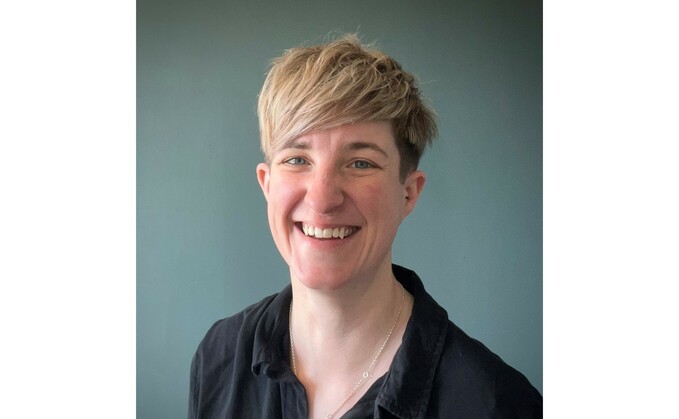
Sophie Guiver, protection and healthcare adviser at Drewberry
In the final part of a series of articles for Pride 2023, Jaskeet Briah speaks to Sophie Guiver, protection and healthcare adviser at Drewberry, about her experience working in the protection industry as a member of the LGBTQ+ community.
When first entering the financial services world several years ago, Guiver found it difficult due to "stuffy" working environments and a lack of young coworkers, particularly pre-Covid-19 when she noted that discussing sexuality "wasn't really a thing" among older cohorts.
"Where I worked before, I was the only openly gay person in the office. When somebody is new and they look different or their sexuality is different, it can take away from who you are as a person," she explains.
This can often lead to feeling like a token person within a company as Guiver felt the reason she was employed in previous positions half of the time was because she "ticked a box" for businesses to say it has diverse colleagues on the payroll.
"I'm really privileged - all my family and friends love me. They knew [about my sexuality] and they supported me, but that's really different when you go to a place of work and you feel like you're coming out again," she reveals. "I look gay and then you just have to confirm it."
Often, she would be faced with invasive personal questions by colleagues, such as ‘who's the guy in the relationship?' and ‘when did you come out?'.
These are conversations that should be had outside of work, Guiver detailed, but when entering a new office, coworkers tend to focus on the sexuality of an LGBTQ+ member rather than them as an individual.
"At other companies I've worked at, you'll get the guy who will look up your wife in a work meeting. Just because I'm a chatty person doesn't mean that I fancy your wife or want to hit on her, but guys can feel threatened, especially in this environment," she says.
Acceptance of identity
Since entering the protection space after working in challenging office environments, Guiver says she hasn't experienced any examples of homophobia.
"Drewberry is based in Brighton so there's colourful people, and I'm just one to add to it. It's a slight relief being an adviser for six or seven years and finding Drewberry and being completely accepted."
Her sexual identity is now "the norm" and being a gay colleague in the office is not a novelty, she explains.
As acceptance of different identities has improved over time, Guiver is now in a position where she is comfortable sharing pieces of her personal life with customers to increase the relatability of protection.
"With clients now I say ‘my girlfriend' on the phone, whereas before I would probably lie and say that I had a boyfriend in some offices, because it seems that you're overindulging when you're just talking about your life," she details.
"If it was a straight person who discussed their partner, no one would think anything of it, so I've learned to embrace it more wherever I'm working."
Improving representation
To improve representation on the intermediary side for clients in the LGBTQ+ community, there should be more options when answering questions on customer applications and more transparency around diversity efforts in the industry.
Currently, application questions for gender allow for answers of male or female, but Guiver details that there should be options for customers to state both their gender identity, as well as their gender assigned at birth.
"There have been times that I've spoken to clients in the past where you'd have no idea that they've transitioned. It's not until they get to the end of the application that they say, so having those open questions or asking them can help. Usually, people are quite honest," she explains.
"Having that on an application changes the insurance industry to seem new and not the people that don't pay out," she adds, and having that option will help clients to feel identified, which also in turn looks good for protection businesses.
Overall, there is a perception that the insurance industry is "ripping people off", Guiver details. If brokers and insurers are supporting LGBTQ+ communities, which she notes that a lot of them do, Guiver encourages these businesses to put that out there more: "Mention that on an advertisement and mention what that insurer has done for the community to make protection feel human."
"Most of us are very nice people who actually care about the clients, the journey and the relationship. But there are some brokerages out there who just want to throw an application at the wall and hope it sticks," she adds.
"I want insurance companies and the industry to look friendlier. By doing that, you're going to promote people to come and use these services without hearing horror stories."













